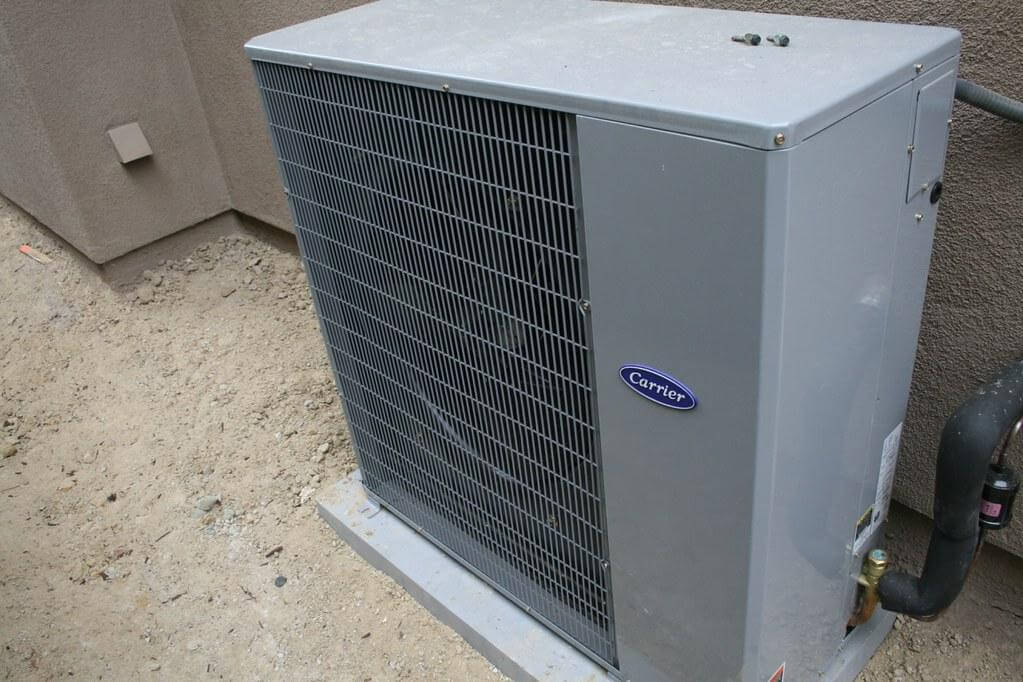In the steamy world of air conditioning decisions, one question spins through the air like an elusive summer breeze: to replace or repair? As temperatures rise, so does the collective anxiety of homeowners facing the inevitable choice that could empty their wallets faster than an ill-timed tropical storm. The perplexing predicament of weighing the costs of AC replacement versus repair is nothing short of a costly conundrum. But fear not, for in this article we shall navigate the turbulent seas of this HVAC quandary, shedding light on the opportune moment to bid goodbye to your trusty old air conditioner and embrace a cooler, cost-effective future. So, gather ’round, dear readers, as we embark on a journey filled with useful insights, financial wisdom, and the sweet promise of a refreshing home sweet home.
When repair costs escalate: Weighing the financial implications of AC repairs
When your air conditioner starts acting up and the repair costs keep piling up, it’s natural to wonder if it’s time to bid farewell to your faithful cooling companion. The costly conundrum of whether to replace or repair your AC can be a tough decision to make. While repairs may seem like a temporary fix, the financial implications can quickly escalate, leaving you wondering if it’s time to invest in a new unit.
One factor to consider is the frequency of repairs. If your cooling system has been in and out of the repair shop constantly, it’s a sign that it might be time to say goodbye. Constantly paying for repairs can lead to a never-ending cycle of expenses that might exceed the cost of a new unit in the long run. It’s essential to consider the age and condition of your current AC as well. Older units tend to require more frequent and expensive repairs, which can quickly add up and strain your budget.
- Consider the cost of repairs versus the cost of a new AC unit.
- Evaluate the frequency and expense of recent repairs.
- Take note of the age and overall condition of your current AC system.
- Compare the energy efficiency of your existing unit to newer models.
- Factor in the potential savings on future energy bills with a more energy-efficient AC.
In some cases, it may be more cost-effective to replace your AC instead of continuously pouring money into repairs. Newer models are often more energy-efficient, which means you can enjoy lower utility bills in the long run, saving yourself from ongoing financial strain. It’s important to weigh the financial implications of repairs and replacement, and assess which option aligns better with your budget and long-term goals.
| Repair | Replacement |
|---|---|
| Short-term solution | Long-term investment |
| Temporary relief from AC issues | Reliable cooling for years to come |
| Potential for frequent future repairs | Reduced need for repairs and maintenance |
Ultimately, the decision to repair or replace your AC depends on your individual circumstances and budget. Don’t hesitate to consult with a professional HVAC technician who can assess the condition of your unit and provide expert guidance. Remember, it’s not just about upfront costs but also the long-term financial implications. So, weigh your options, consider your comfort needs, and make a decision that aligns with both your budget and peace of mind.

Understanding the warning signs: Indicators that it’s time to bid farewell to your AC unit
As summer approaches and the temperature starts to rise, we rely heavily on our trusty AC unit to keep us cool and comfortable. But, what happens when our beloved appliance starts showing signs of trouble? Understanding the warning signs that indicate it’s time to bid farewell to your AC unit can save you from costly repairs and potentially dangerous situations.
Here are some important indicators that may suggest it’s time to consider AC replacement instead of repair:
- Frequent breakdowns: If your AC unit seems to be constantly in need of repair, it’s a clear warning sign that it’s on its last legs. Frequent breakdowns can be a hassle and can quickly add up in repair costs.
- Old age: Just like any other appliance, AC units have a lifespan. If your AC unit is more than 10 years old, it may be more cost-effective in the long run to replace it rather than continuing to repair it.
- Inefficient performance: Your AC unit should be able to cool your home efficiently. If you notice that it’s taking longer to cool down your space or that your energy bills have significantly increased, it may be a sign that your unit is no longer functioning at its optimal efficiency.
Ultimately, the decision to replace or repair your AC unit depends on a variety of factors, including the extent of the damage, your budget, and the age of the unit. It’s always a good idea to consult with a professional HVAC technician who can assess the situation and provide you with the best course of action. By recognizing the warning signs and acting proactively, you can ensure a comfortable and efficient cooling experience for yourself and your loved ones.

Comparing the costs: A comprehensive analysis of AC replacement versus repair
A Comprehensive Analysis of AC Replacement versus Repair
Deciding whether to replace or repair your air conditioning unit can be a costly conundrum. To help you make an informed decision, we’ve conducted a detailed analysis comparing the costs of these two options. Keep in mind that every situation is unique, and there are several factors to consider.
The Pros and Cons of Repair
Repairing your AC unit can be a more affordable solution in the short term, especially if the issues are minor or can be easily fixed. However, it’s important to evaluate and weigh the pros and cons:
- Pros:
- Lower upfront costs compared to replacement.
- Repairs can address specific issues and extend the lifespan of your current unit.
- Cons:
- There could be more frequent breakdowns in the future, leading to additional repair expenses.
- An aging unit may have lower energy efficiency, resulting in higher utility bills.
- Outdated technology may limit the effectiveness of repairs.
The Pros and Cons of Replacement
While AC replacement may involve higher upfront costs, this option offers a range of benefits worth considering:
- Pros:
- Improved energy efficiency, potentially resulting in long-term cost savings.
- Access to the latest technology and features, enhancing comfort and performance.
- Peace of mind with a new warranty, minimizing the risk of unexpected expenses.
- Cons:
- Higher initial investment compared to repairs.
- May require HVAC system modifications or installation costs.
In the end, the decision to replace or repair your AC unit depends on various factors, such as the age and condition of the existing unit, frequency of breakdowns, utility costs, and your long-term financial goals. It’s recommended to consult with a professional HVAC technician who can provide an accurate evaluation and help you navigate through this costly conundrum.

Expert recommendations: Factors to consider when deciding between AC replacement or repair
Factors to consider when deciding between AC replacement or repair
When it comes to making the difficult decision between AC replacement and repair, it is important to consider several key factors that can help guide you towards the most cost-effective and practical solution. Here are some expert recommendations to keep in mind:
1. Age of your AC unit
One of the primary factors to consider is the age of your current AC unit. As a general rule of thumb, if your cooling system is older than 10 to 15 years, it may be more cost-effective in the long run to replace it, instead of investing in frequent repairs. Older units tend to lose efficiency over time, resulting in higher energy bills and decreasing performance.
2. Frequency and cost of repairs
Take a moment to evaluate the history of repairs and their associated costs. If your AC unit has been experiencing frequent breakdowns or requires major repairs that exceed 50% of the cost of a new unit, it might be more economical to opt for a replacement. Continuously repairing an unreliable system can result in ongoing expenses that quickly add up.
3. Energy efficiency
An essential consideration when deciding between replacement or repair is the energy efficiency of your current unit. Older models tend to be less efficient, consuming more energy and inflating your utility bills. Investing in a new, energy-efficient AC unit can significantly reduce your energy costs in the long term.
4. Cooling needs
Assess your current cooling needs and compare them to the capabilities of your existing AC system. If your current unit struggles to cool your space adequately, even after repairs, it might be time for an upgrade. Consider the size and layout of your home or office and consult with professionals to determine the appropriate cooling capacity required.
5. Environmental impact
When contemplating replacement or repair, it’s worth considering the environmental impact of your decision. Newer AC units often incorporate eco-friendly technologies that help reduce greenhouse gas emissions and promote sustainability. By replacing your old unit with a more environmentally friendly option, you can contribute to a greener future while enjoying the benefits of improved cooling performance.
| Factor | Replacement | Repair |
|---|---|---|
| Age of AC unit | Consider replacement if over 10-15 years old | Possible if younger than 10-15 years |
| Frequency and cost of repairs | May be less costly in the long run | If minimal repairs are needed |
| Energy efficiency | Higher energy efficiency with newer models | Efficiency may decrease over time |
Remember, each situation is unique, and it’s crucial to consult with HVAC professionals to evaluate your specific circumstances before making a final decision. They can assess your AC system, provide accurate cost estimates, and help you make an informed choice that optimizes your comfort, budget, and long-term satisfaction.
As we conclude our exploration of the daunting decision between AC replacement and repair, one thing is abundantly clear – the choice is far from simple and certainly not without its financial implications. In this costly conundrum, there is no one-size-fits-all solution; instead, it is a delicate dance between evaluating the cost, age, and overall condition of your faithful cooling companion. While the prospect of a shiny, new AC unit may be tantalizing, remember that repairs often offer a cost-effective solution that can breathe new life into your existing system. However, even the sturdiest of cooling mechanisms will eventually succumb to time’s relentless grip, and when faced with exorbitant repair bills and dwindling efficiency, waving farewell to your old friend becomes an inevitability. So, as you ponder over the quandary of AC replacement versus repair, take solace in the fact that you have the power to make an informed decision tailored to your specific circumstances. Consider consulting a trusted HVAC professional who can provide expert guidance and take the burden off your shoulders. In closing, bidding adieu to a once-reliable AC unit is never easy, but knowing when to embrace change can save you from unexpected breakdowns and financial strain in the long run. So, steel yourself for this costly conundrum, weigh the pros and cons diligently, and bid your final goodbyes or open your heart to a new beginning – the choice is yours. With thoughtful consideration, you can embark on a cooling journey that ensures comfort, efficiency, and peace of mind for years to come.




